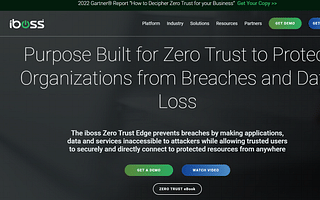Maya Braun is a seasoned expert in the realm of cryptography, driven by a profound interest in data privacy. Her professional journey has been dedicated to the design and development of secure communication systems, while also being a vocal advocate for digital rights. Maya takes pleasure in penning down her thoughts on the latest breakthroughs in cryptography and their potential impacts on privacy.
In today's digital age, where we rely heavily on the internet for almost every aspect of our lives, ensuring the security of our online activities has become more crucial than ever before. Internet security is not just a luxury; it's a necessity. Let me explain why.
1. Protection of Personal Information: The internet has transformed the way we share and store information. From personal details to financial transactions, we entrust a significant amount of sensitive data to online platforms. Without proper security measures, this information is vulnerable to theft and misuse. Cybercriminals are constantly evolving their techniques to exploit weaknesses in online systems. Internet security helps protect your personal information from falling into the wrong hands.
2. Prevention of Identity Theft: Identity theft is a growing concern in the digital age. Cybercriminals can use stolen personal information to impersonate you, open fraudulent accounts, or commit other illegal activities. By implementing robust internet security measures, you can significantly reduce the risk of falling victim to identity theft.
3. Protection Against Malware and Viruses: Malware and viruses are malicious software programs designed to disrupt, damage, or gain unauthorized access to computer systems. They can be spread through infected websites, email attachments, or even social media platforms. Internet security solutions, such as antivirus software and firewalls, help detect and prevent these threats from infecting your devices.
4. Defense Against Cyber Attacks: Cyber attacks are becoming more sophisticated and prevalent, targeting individuals, businesses, and even governments. These attacks can range from phishing scams and ransomware attacks to DDoS (Distributed Denial of Service) attacks that can bring down entire networks. Internet security measures, such as strong passwords, encryption, and regular software updates, help defend against these attacks and minimize their impact.
Common Cyber Attacks and Defense Strategies
| Type of Cyber Attack | Description | Potential Impact | Defense Strategy |
|---|---|---|---|
| Phishing Scams | Fraudulent attempt to obtain sensitive information by disguising as a trustworthy entity. | Identity theft, financial loss. | Be cautious of suspicious emails, use email filters. 🛡️ |
| Ransomware Attacks | Malware that encrypts the victim's files and demands a ransom to restore access. | Loss of important data, financial loss. | Regularly backup data, keep software updated, use reliable security software. 🔒 |
| DDoS Attacks | Overwhelming a network with traffic to cause a shutdown of services. | Service disruption, potential data breach. | Use anti-DDoS services, increase bandwidth. 🌐 |
| Password Attacks | Attempts to gain unauthorized access by cracking a user's password. | Unauthorized access, data theft. | Use strong, unique passwords, enable two-factor authentication. 🔑 |
| Man-in-the-Middle Attacks | Intercepting and altering communications between two parties without their knowledge. | Data theft, privacy violation. | Use encrypted connections, verify identities of third parties. 🕵️♂️ |
5. Protection of Financial Transactions: With the rise of online banking, e-commerce, and digital payment systems, the security of financial transactions has become paramount. Internet security protocols, such as Secure Sockets Layer (SSL) encryption, ensure that your financial information remains encrypted and secure during online transactions.
6. Preservation of Digital Privacy: Internet security is closely tied to digital privacy. Without proper security measures, your online activities can be monitored, tracked, and recorded by various entities, including government agencies, advertisers, and cybercriminals. Internet security tools, such as virtual private networks (VPNs) and browser extensions, help protect your privacy by encrypting your internet connection and anonymizing your online presence.
In conclusion, internet security is necessary in today's digital age to protect our personal information, prevent identity theft, defend against malware and cyber attacks, safeguard financial transactions, and preserve digital privacy. By implementing robust internet security measures, you can stay secure online and enjoy the countless benefits that the digital world has to offer.
Remember, staying informed about the latest cybersecurity updates and understanding network security basics, such as penetration testing, are essential for maintaining a secure online presence. At HackerDesk, we are committed to providing you with the knowledge and tools you need to navigate the digital landscape safely. Stay tuned for more insightful articles and resources to help you stay secure in the digital world.















